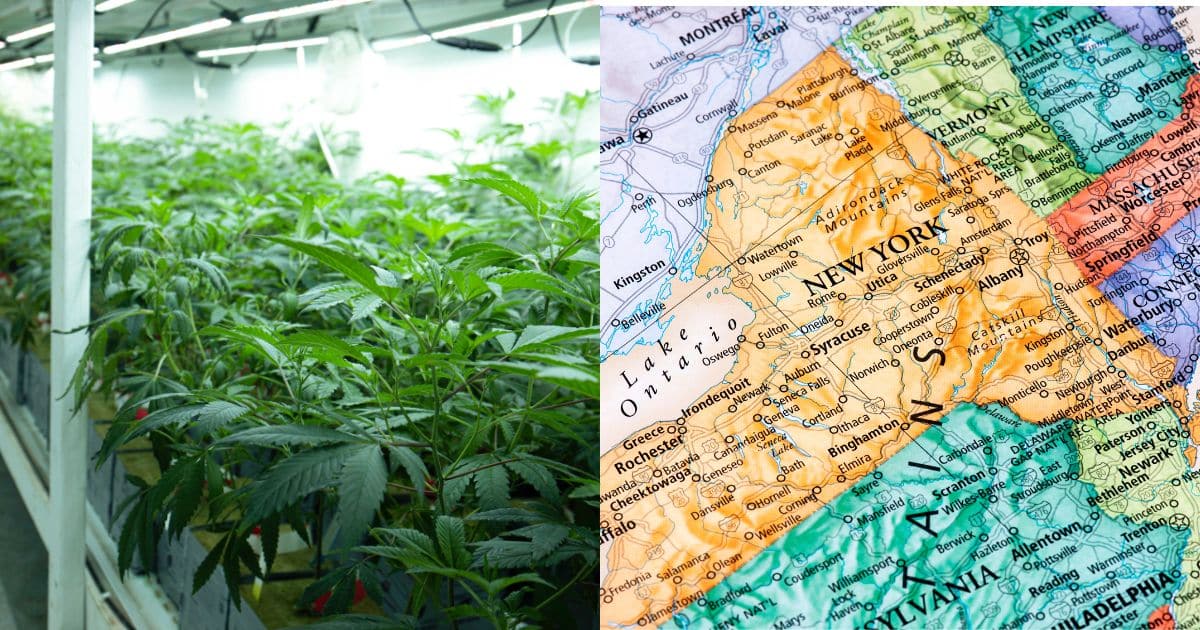New York- New York cannabis legalization was received with enthusiasm and optimism, signaling a new era of legal consumption, social justice, economic growth, and a regulated market that could serve as a national model. However, the reality of implementing such a grand vision has turned out to be way more challenging and time-consuming than initially expected.
Governor Kathy Hochul’s recent directive for an operational overhaul of the Office of Cannabis Management (OCM) highlights the hurdles in realizing New York’s cannabis dreams.
New York Cannabis Regulatory Assessment’s Findings
Gov Hochul called for the assessment in March, and Commissioner Jeanette Moy led the effort, revealing significant structural limitations within the OCM. The issues identified include inadequate communication with applicants and licensees, which leads to a bottleneck of license applications. Additionally, there is an inability to effectively manage New York State’s cannabis marketplace.
In particular, the process, which has slowed down over the years due to several lawsuits, seems slow and cluttered, leaving the individuals it aimed to assist, especially those from communities disproportionately impacted by cannabis prohibition, in limbo. The emergence of illegal storefronts has only exacerbated the issue, diluting the market potential for authorized Cannabis Adult-Use Retail Dispensary (CAURD) licensees.
Road to Reform?
In response, Governor Hochul has announced reforms aiming to catalyze New York’s legal cannabis market into the equitable, robust system it was envisioned to be. The initiatives include:
- Launching an Enforcement Task Force: This move targets the swift closure of illegal cannabis retail stores, aiming to clean what regulators believe to be a saturated market.
- Revamping Licensing Processes: By addressing the backlog and instituting a service-level agreement to ensure the completion of future applications within 90 days, the OCM aims to streamline and expedite the licensing process.
- Enhanced Communication Tools: Regulatory bulletins and public dashboards aim to enhance transparency and stakeholder engagement.
- Financial Support for Licensees: Recognizing the financial strain on CAURD licensees, a $5 million grant program has been introduced to aid in offsetting initial operational costs.
“We promised to build the strongest, most equitable legal cannabis market in the nation, and we’re announcing long-needed steps to make New York’s cannabis program work as promised.”
-Governor Hochul via press release on the assessment of the OCM
Furthermore, these actions occur alongside larger structural changes within the OCM, including key department staff increases and the creation of a 5-year strategic plan. All efforts aim to pivot New York’s cannabis rollout towards success, emphasizing compliance, efficiency, and equity.
The Challenge with ‘Illicit’ Cannabis Shops
A significant portion of New York’s strategy targets the proliferation of ‘illicit’ cannabis stores, estimated at nearly 3,000. This is a testament to the demand for cannabis, but what regulators say is a stark threat to the regulated market’s integrity and safety.
The newly launched Cannabis Enforcement Task Force, in collaboration with state and local law enforcement, aims to inspect, penalize, and shut down these unauthorized operations.
“The trafficking of illegal Cannabis is supplying the illicit shops that have cropped up across the state, disrupting the regulated market and leading other issues. The State Police will work with its partners to target those who are bringing illegal Cannabis into New York, disrupt their operation and hold them accountable to the full extent of the law.” said New York State Police Superintendent Steven G. James
The crackdown is not only against the storefronts but extends to the landlords enabling these businesses and the traffickers sustaining them.
“The multi-agency task force created to assess the Office of Cannabis Management has identified several steps the agency can take to unclog the bottleneck of applications by improving communication with applicants and streamlining the application process. The proposals outlined in the task force’s report will improve transparency and open lines of communication in the application process while boosting the state’s efforts to meet Governor Hochul’s commitment to equity in New York’s cannabis market.” said New York State Office of General Services Commissioner Jeanette Moy
You can find the full report of the assessment and a detailed outline how New York can fix the ‘bottleneck’ of delayed licensing here.

Stumbling Start with Promises for a Better Future
The rollout of cannabis licenses in New York has been nothing short of a challenging ordeal, far from the success initially envisioned.
Initially, designed as a beacon of social equity, the program aimed to prioritize licenses for social equity applicants, ensuring that individuals from communities disproportionately affected by cannabis prohibition could benefit from the state’s cannabis market.
Unfortunately, delays, lawsuits, and regulatory challenges have mired this vision, leaving many potential licensees in limbo or, worse, forcing them out of business. Instead of leading the charge into the recreational market, these social equity applicants watched from the sidelines as larger, multi-state operators (MSOs) swiftly occupied the space meant for them.
The report commissioned by Governor Kathy Hochul underscores the depth of these failings, painting a picture of a well-intended program bogged down by inefficiency and red tape.
However, there’s a silver lining amidst this acknowledgment of past mishaps. The state’s commitment to overhauling the Office of Cannabis Management, enhancing transparency, and streamlining the licensing process offers a glimmer of hope.
Consequently, with the introduction of enforcement task forces and financial support for struggling licensees, New York seems poised to salvage its cannabis initiative, aiming to transform it into the equitable and thriving market it was meant to be.
While the road ahead remains daunting, these steps signify a crucial pivot towards rectifying the program’s shortcomings. Only time will reveal the efficacy of these reforms and whether they can finally fulfill the original ambitions of New York’s cannabis legalization effort.
- Ohio’s Senate Bill 56 Postponed, Leaving Details of Issue 2 Still Unresolved
- Sports Stars and Well Known Entertainers Join Forces Calling on Trump for Cannabis Reform
- Pinsky and the Brain: Bill White on His Journey to Consulting in Cannabis
- Delaware’s Recreational Cannabis Market Finally Set to Launch After Years of Challenges
- Excise Tax Increase to 19% and Its Impact on California Retailers
- Nebraska’s Governor Approves Emergency Medical Cannabis Regulations













